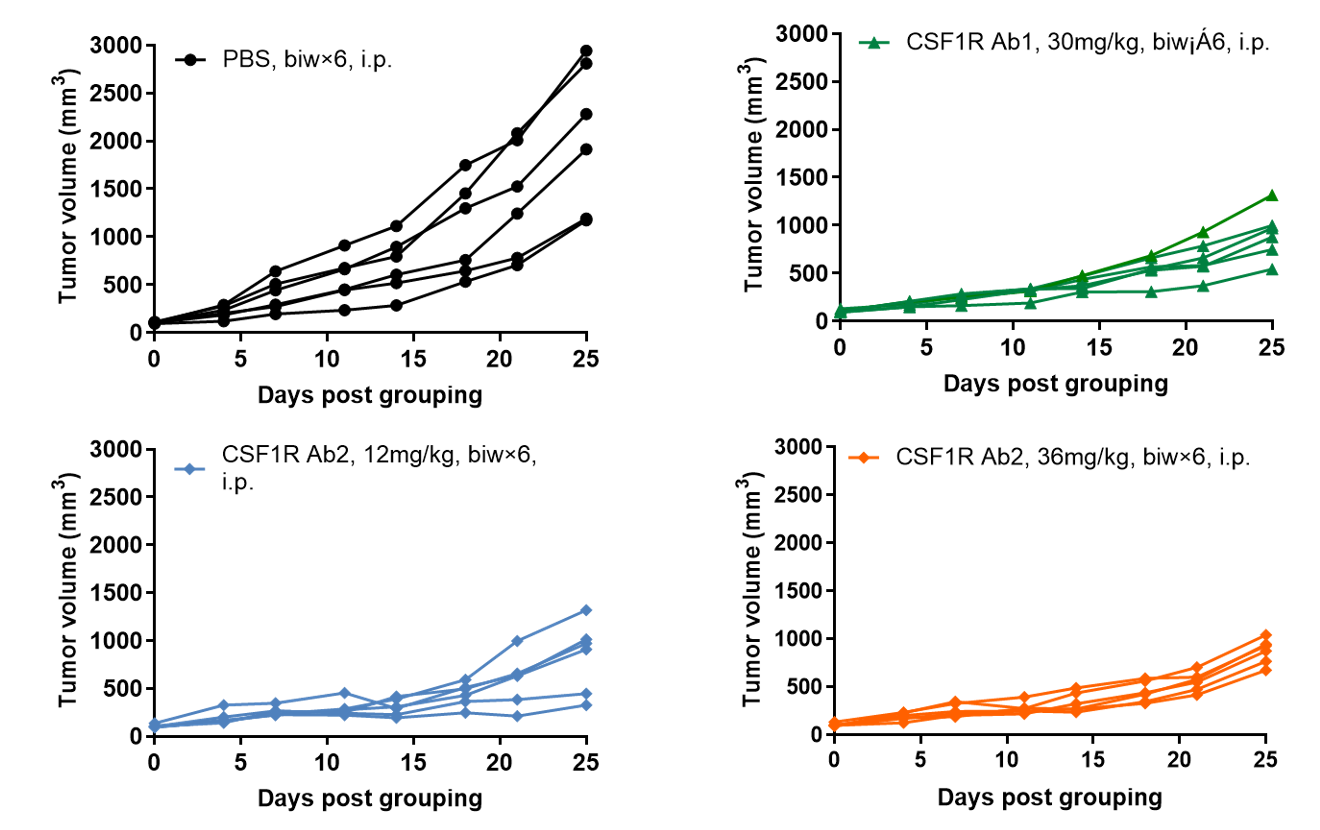Basic Information
-
Protein expression analysis

-

Strain specific CSF1 expression analysis in homozygous B-hCSF1/hCSF1R mice by ELISA. Splenocytes were collected from WT and homozygous B-hCSF1/hCSF1R (H/H) mice stimulated with LPS in vivo, and analyzed by ELISA with species-specific anti-CSF1 ELISA kit. Mouse CSF1 was detectable in WT. Human CSF1 was exclusively detectable in homozygous B-hCSF1/hCSF1R but not WT mice.

Strain specific CSF1R expression analysis in homozygous B-hCSF1/hCSF1R mice by flow cytometry. Blood were collected from WT and homozygous B-hCSF1/hCSF1R (H/H) mice, and analyzed by flow cytometry with species-specific anti-CSF1R antibody. Mouse CSF1R was detectable in WT .Human CSF1R was exclusively detectable in homozygous B-hCSF1/hCSF1R but not WT mice.
-
In vivo efficacy of anti-human CSF1R antibodies

-

Antitumor activity of anti-human CSF1R antibodies in B-hCSF1/hCSF1R mice. (A) Anti-human CSF1R antibodies inhibited MC38 tumor growth in B-hCSF1/hCSF1R mice. Murine colon cancer MC38 cells were subcutaneously implanted into homozygous B-hCSF1/hCSF1R mice (female, 6-7-week-old, n=6). Mice were grouped when tumor volume reached approximately 100 mm3, at which time they were treated with two anti-human CSF1R antibodies with doses and schedules indicated in panel. (B) Body weight changes during treatment. (C) Mouse survival after grouping. As shown in panel A and C, anti-human CSF1R antibodies were efficacious in controlling tumor growth in B-hCSF1/hCSF1R mice, demonstrating that the B-hCSF1/hCSF1R mice provide a powerful preclinical model for in vivo evaluation of anti-human CSF1R antibodies. Values are expressed as mean ± SEM.

-
Poster

-
AACR 2022: Evaluation of Therapeutic Drug Candidates Using a Novel Humanized B-hCSF1/hCSF1R


